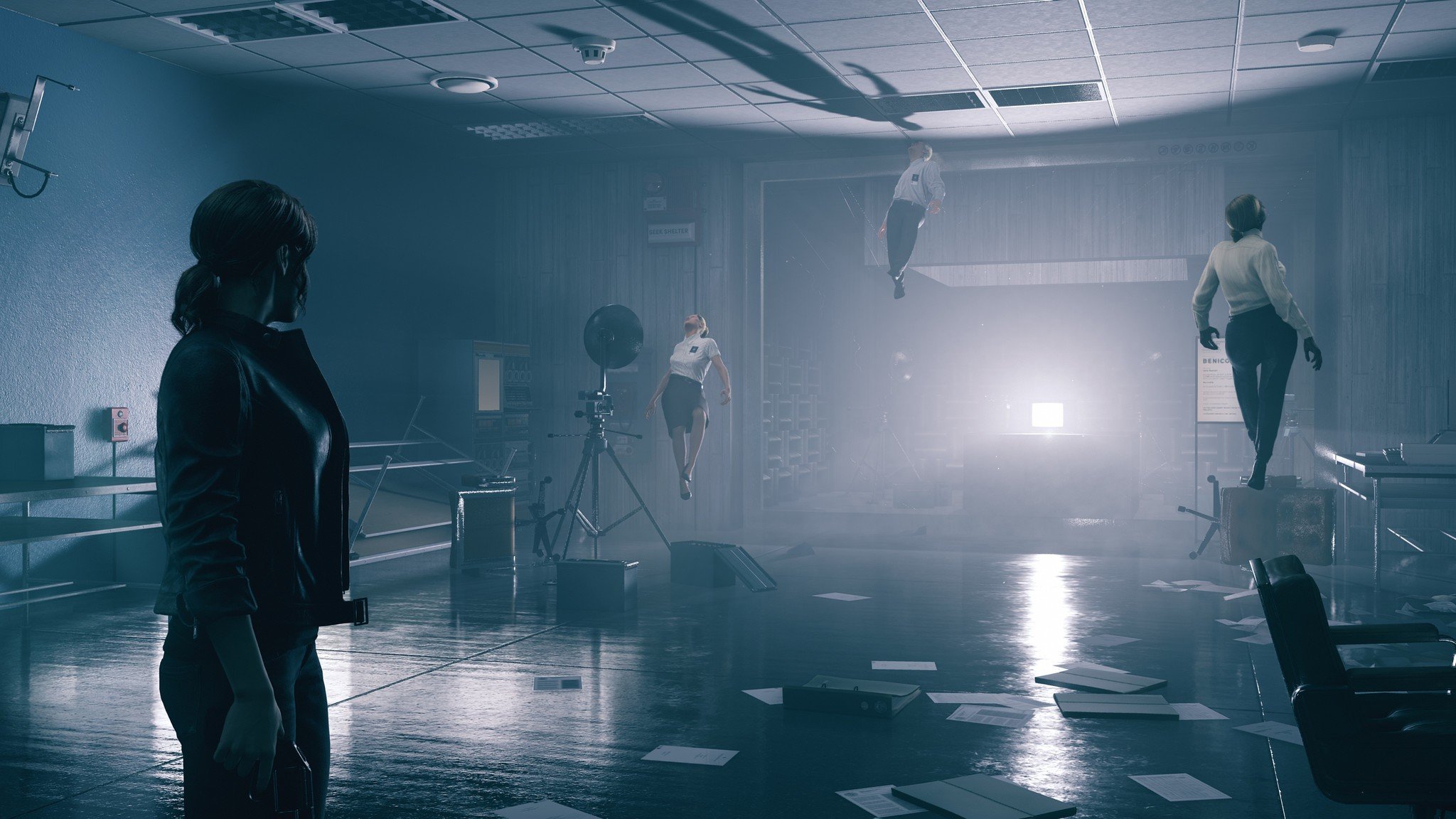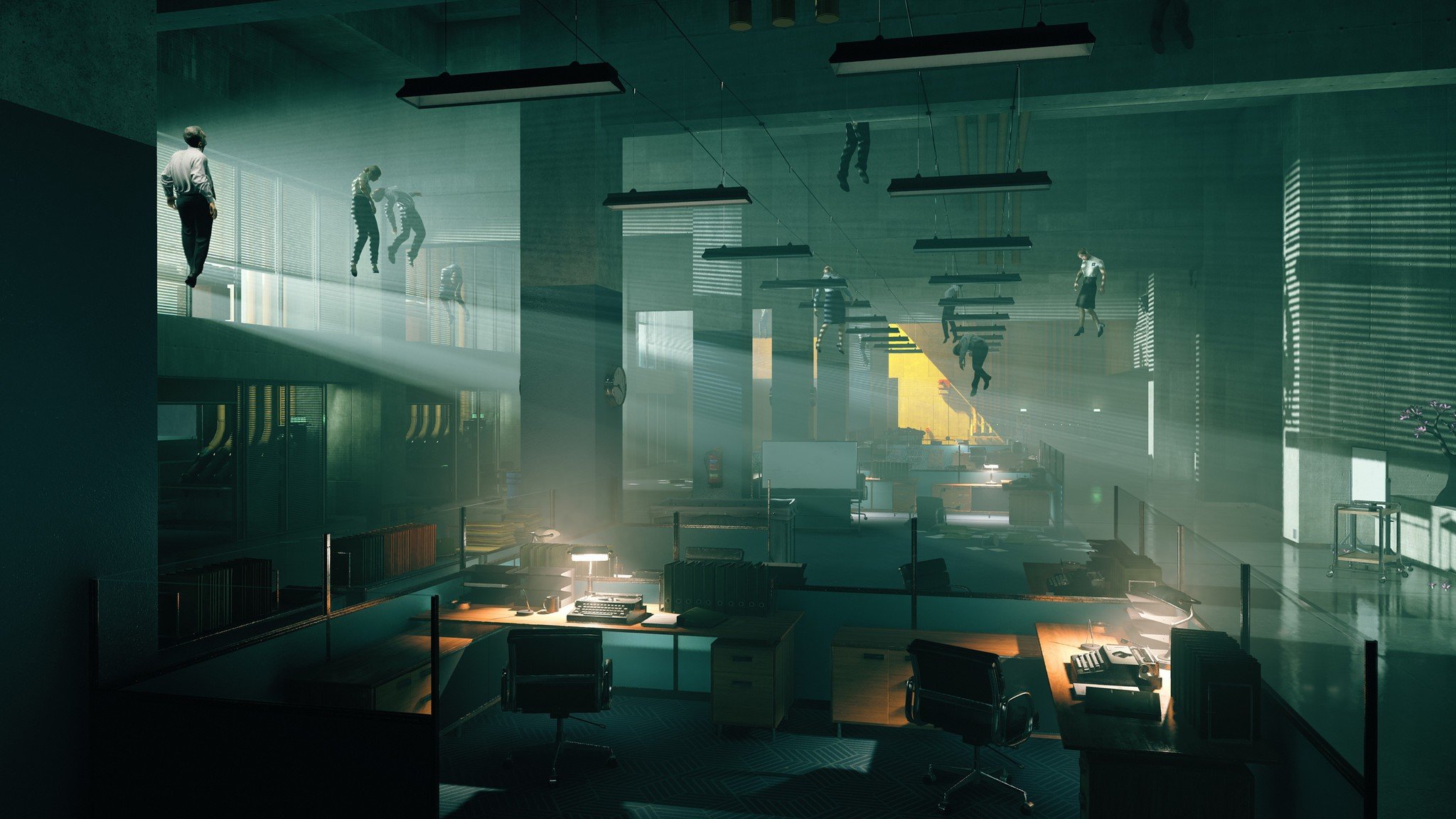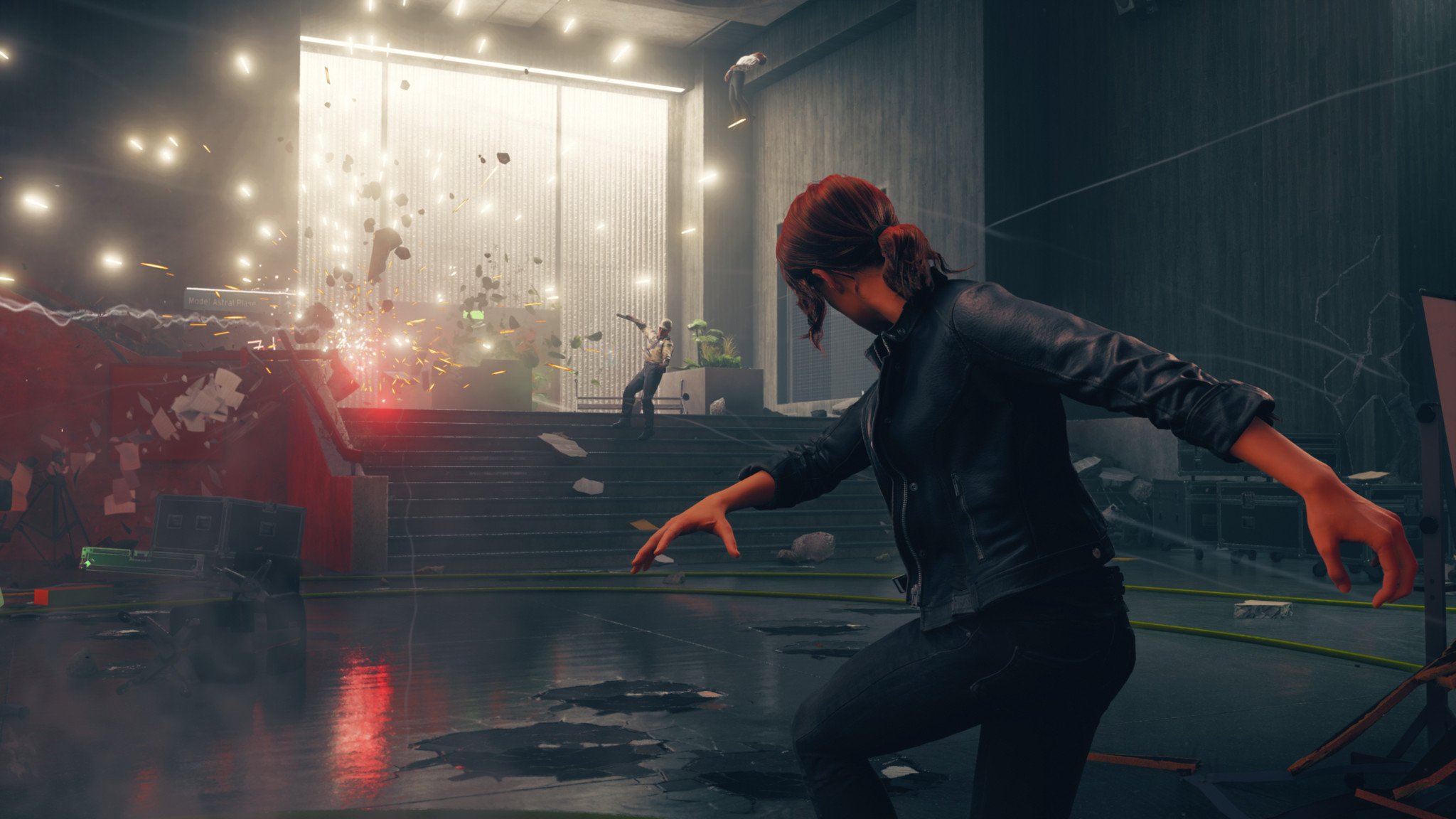Developer Remedy Entertainment's Quantum Break is one of my all-time favorite third-person shooter titles, as it blended satisfying gunplay with unique supernatural powers and a great narrative that was as engaging as it was gripping. Therefore, when I saw that its new game, Control, was looking to improve upon the Remedy formula even further, I was ecstatic to get my hands on the title to see what the studio's creative minds had come up with next.
Unfortunately, after completing the game, I'm left feeling disappointed about Control. The game introduces several new ideas to the table, but it doesn't capitalize on all of them. In some ways, it's even a step back from what Remedy achieved with Quantum Break. Control is far from bad — in fact, it's solid — but it's also far from being amazing, too.

$60Bottom line: Though it has an excellent foundation, Control never truly achieves greatness. It's a solid game, but not a title that will wow most players.
Pros
- Excellent story premise
- Awesome combat mechanics
- Creative use of live-action film
- Great atmosphere
- Gorgeous visuals
Cons
- Characters are on the bland side
- Puzzle gameplay is underdeveloped
- Disappointing soundtrack
- Needs more polish
Become the Director

Control places you in the shoes of a woman named Jesse Faden, who has arrived on-site at the headquarters of the secretive FBC (Federal Bureau of Control), an organization dedicated to containing and controlling supernatural entities. With the previous Director killed by an invasive force colloquially known as "the Hiss," Jesse arrives to fill his shoes. And with the help of the FBC personnel, she gets to work cleansing the building of Hiss presence, preventing it from spreading to the outside world. The overall narrative of Control is best left as a mystery for you to uncover, so I won't spoil anything more than this brief synopsis and critique.
There's a ton of interesting lore and world-building to be found in Control, ranging from official documentation of Hiss enemy types to casual memos between employees. One of the best types of these collectibles are short video clips done with live-action film, depicted in-game as training videos. I love seeing Remedy continue to experiment with live-action footage in its games — it was done wonderfully in Quantum Break, and Remedy made it work well in Control, too.
Control's story has a great premise, but its characters leave a lot to be desired.
Unfortunately, the story starts to take a dip in quality when it comes to the actual characters themselves. While the plot premise and setting are excellent, they can't hide a bland cast of characters and an uninteresting script. While there are a few notable personalities, such as the chipper researcher Emily Pope or the creepy janitor, Ahti, none of the others really piqued my interest, including the protagonist herself, Jesse. They're not bad, but they aren't anything special, either. This is a big disappointment, considering Remedy's previous titles have all had superb characters.
Supernatural superpowers
The majority of Control's gameplay revolves around its combat, in which you use both your firearm and your supernatural powers in order to dispose of Hiss-infected hosts and entities. Both of these are versatile; your gun can be used in several different firing modes that range from pistol to missile launcher and everything between. You can use your powers to pick up objects and throw them at enemies, create a wall of rubble in front of you to use as a shield, and more. This gives you a huge amount of different ways to approach combat, which helps keep the fighting fresh throughout the game.
Just because you have a strong arsenal, though, doesn't mean that the Hiss aren't a challenge. From infected troopers wearing kevlar body armor to horribly mutated FBC agents that can fly, the Hiss' army is vast and diverse. Each enemy type will require you to change your combat approach. For example, there's one special type of soldier that has a powerful energy shield. Bullets are weak against them, but thrown objects penetrate it easily. Another foe you'll encounter is a support unit that floats near other enemies and constantly heals them, so you'll be forced to go after them first.
All the latest news, reviews, and guides for Windows and Xbox diehards.
Outside of the combat, though, the gameplay is pretty uninteresting. Exploration and solving puzzles constitute the rest of what you'll be doing when you aren't battling the Hiss, but the former is marred by confusing level design while the latter is laughably simple. I frequently spent several minutes just trying to figure out how to navigate from A to B within the title's unnecessarily complex layout, and many of the puzzles boil down to throwing a battery cube into an empty slot to power something up. There were a couple of creative ones, but the vast majority were simplistic and unengaging to solve.
Presentation and polish

Control is a series of ups and downs, and that trend continues when it comes to the game's presentation and polish.
Let's start with the good: Control is a gorgeous game, and its attention to visual detail is stunning. The visual fidelity of everything, from the characters to the NPCs to the environment, is simply incredible. I wouldn't say it's the best looking game out on Xbox One right now, but it's pretty high up there. The title's environments are varied and diverse as well, with the cold, clinical feel of a federal research building and the damp, musty depths of the maintenance sector contrasting wonderfully with the blood-red and pitch-black aesthetic of Hiss-infested zones.
Control's visuals are stunning, but the music is disappointing and the game needs more polish.
Aside from the graphics, though, Control yet again leaves things to be desired. The musical score is forgettable and doesn't do much to support pivotal moments in gameplay or story, and the title also has quite a handful of performance issues. The worst one I encountered in my playthrough was with the map disappearing, partially or fully, in the user interface. Control's levels are already confusing enough; losing the ability to use the map just made things even more grating. The game also tended to stutter in areas with a lot going on, and rooms full of props hit my framerate. I'm playing on an Xbox One X and having these problems, so I imagine that it will be even worse for Xbox One and Xbox One S players, and those on a less capable PC.
Should you buy Control?
Ultimately, Control is a solid game that offers a really fun combat system to experience, a fascinating world full of interesting information to discover, and gorgeous visuals to glue your eyes to — even if many other aspects of its design are large disappointments. While I finished Control feeling let down after expecting Remedy Entertainment to outdo themselves, it's still a title that many players will enjoy.
If you're planning on getting the game thinking that it's going to be the next Quantum Break, I advise that you to wait for a sale, as Control is a step down from Remedy's previous title in terms of overall quality. However, if you don't mind the issues I brought up too much, you can get the game right now. You probably won't feel disappointed by it too badly.
Control comes out August 27, 2019 on Xbox One, PlayStation 4, and PC for $60.

Brendan Lowry is a Windows Central writer and Oakland University graduate with a burning passion for video games, of which he's been an avid fan since childhood. He's been writing for Team WC since the summer of 2017, and you'll find him doing news, editorials, reviews, and general coverage on everything gaming, Xbox, and Windows PC. His favorite game of all time is probably NieR: Automata, though Elden Ring, Fallout: New Vegas, and Team Fortress 2 are in the running, too. When he's not writing or gaming, there's a good chance he's either watching an interesting new movie or TV show or actually going outside for once. Follow him on X (Twitter).

